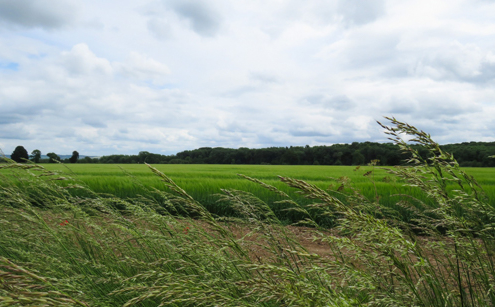
Advanced Grazing Webinar, Session 3 – Animals
Do you like to eat fresh food? Do you like variety in your diet? Most of us would probably answer ‘yes’ to both questions. Not surprisingly, livestock crave the same things we do. If that desire is not met, then we get less than optimal livestock performance. This can create health problems for the animals, increase costs, and reduce profitability. So how can we constantly provide fresh food for livestock and a diet that is diverse?
Justin Morris and Lee Rinehart
Justin Morris and Lee Rinehart
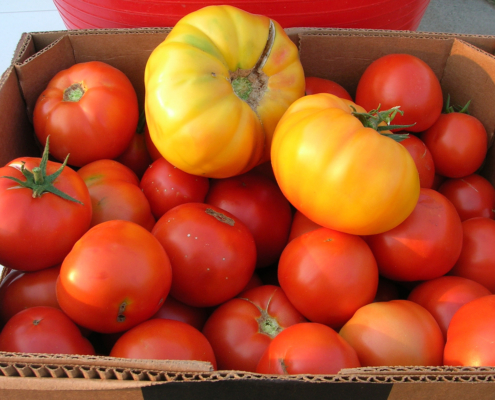
Episode 256. Organic Pioneer Michael O’Gorman on Vegetable Production for Profitability, Part 2
This episode of Voices from the Field is the second part of a conversation between NCAT Sustainable Agriculture Specialist Mike Lewis and Michael O’ Gorman, an organic farming pioneer and founder of the Farmer Veteran Coalition.
Mike Lewis and Michael O’ Gorman
Mike Lewis and Michael O’ Gorman

Episode 255. Organic Pioneer Michael O’Gorman on Vegetable Production for Profitability
This episode of Voices from the Field is the first of a two-part conversation with organic farming pioneer and founder of the Farmer Veteran Coalition Michael O’Gorman. For 50 years, Michael has spearheaded some of the country’s most influential farming ventures. In this part of the conversation, he and NCAT Sustainable Agriculture Specialist Mike Lewis talk about Michael’s history and how good planning and record keeping can help farmers cope with rising prices for inputs and supplies.
Mike Lewis and Michael O’Gorman
Mike Lewis and Michael O’Gorman
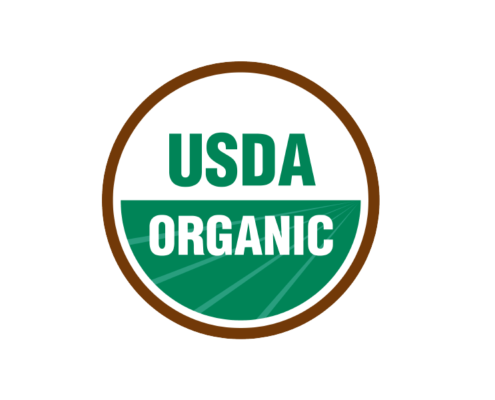
Episode 242. Understanding the Organic Certification Process
In this episode of Voices from the Field, Martin Guerena, a sustainable agriculture specialist with the National Center for Appropriate Technology’s western regional office in Davis, California, speaks with Sean Feder, director of inspection operations for California Certified Organic Farmers.
Martin Guerena and Sean Feder
Martin Guerena and Sean Feder

Episode 238. Producción Avícola de Pastoreo
En este podcast, Edgar Mendoza Samaniego de Sol Seeker Farm habla…

Episode 226. Organic Pulse Production Is Timeless in Montana
In this episode of Voices from the Field, NCAT Agricultural and…
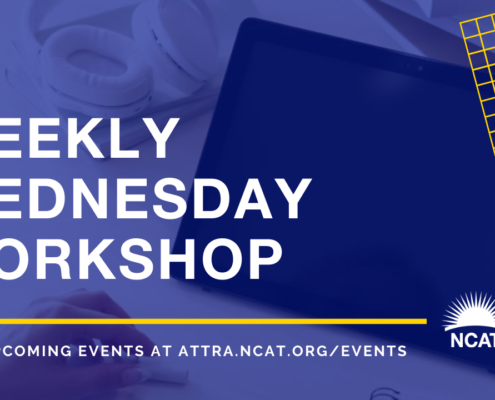
Organic Production with Vicki Morrone: Part 2. Cover Crops
In this webinar, NCAT’s Felicia Bell is joined by Vicki Morrone,…

Organic Production with Vicki Morrone: Part 1
In this webinar, NCAT’s Felicia Bell is joined by Vicki Morrone,…
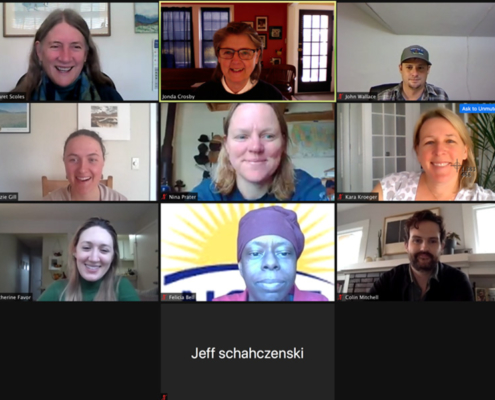
NCAT Staff Complete Rigorous International Organic Inspectors Association Crop and Livestock Inspector Training
Last month, 12 National Center for Appropriate Technology employees hit the books for a rigorous week-long training through the International Organic Inspectors Association (IOIA). Through the IOIA curriculum, we developed skills required for inspecting and reporting on the management of organic crop and livestock operations.
By Lizzie Gill, Local Foods Specialist
By Lizzie Gill, Local Foods Specialist

Takeaways from the Real Organic Symposium
In 2014, my colleagues and I held an evening reception at our office in San Antonio for the members of the National Organic Standards Board (NOSB). We wanted to show our appreciation to these volunteers and organic champions who do the often-thankless job of interpreting and defending the USDA organic standards.
By Mike Morris, Director of NCAT’s Southwest Regional Office
By Mike Morris, Director of NCAT’s Southwest Regional Office
Freshly Picked
NCAT Websites
Get Help
Ask an Ag Expert
Call us: 1-800-346-9140
Visit the Forum
Don’t Miss!
National Center for Appropriate Technology
Helping people build resilient communities through local and sustainable solutions that reduce poverty, strengthen self-reliance, and protect natural resources.
